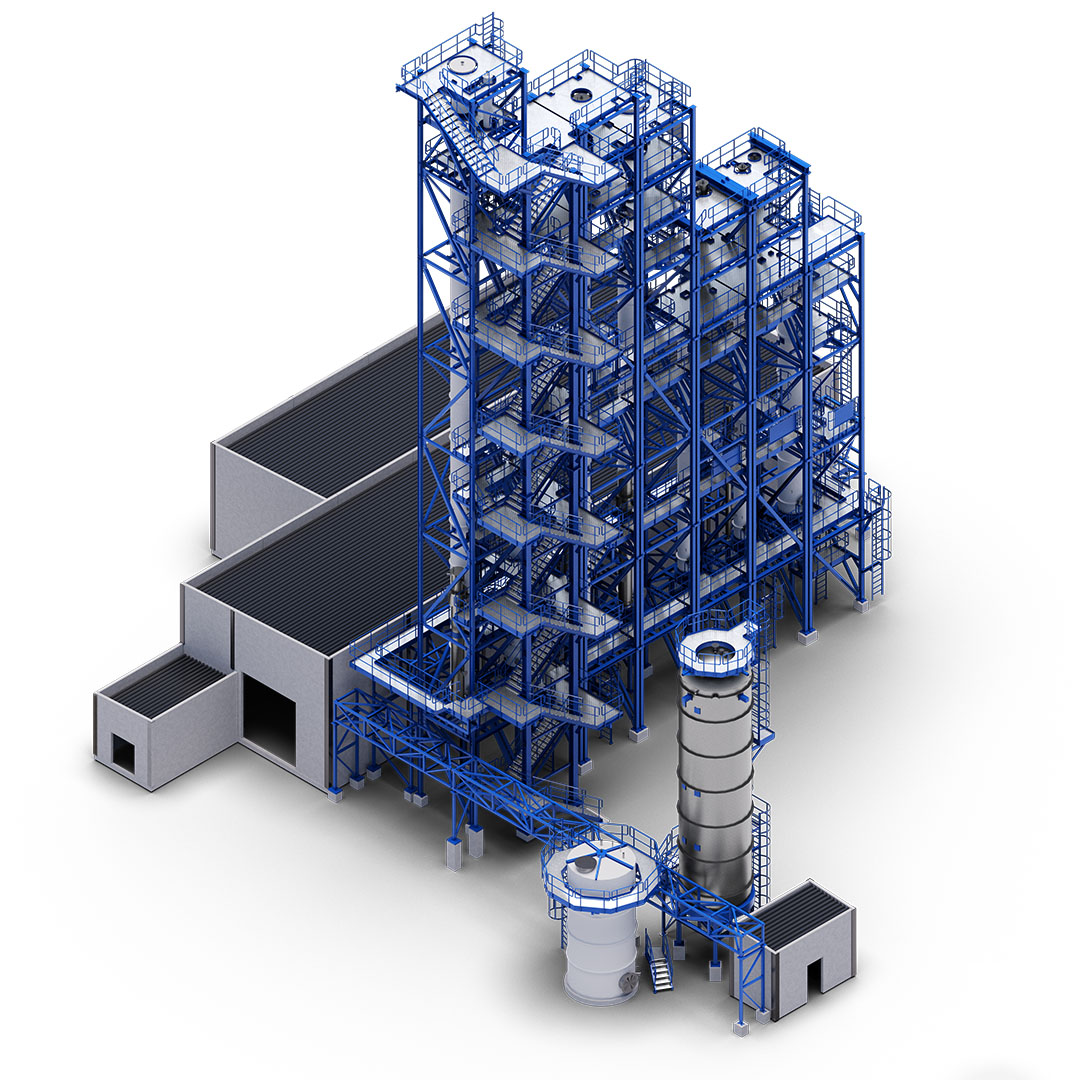Benefits of ANDRITZ Kraftanol™ biomethanol plant
- Additional revenue from producing commercial-grade biomethanol
- Environmental and economical savings
- Supporting fossil-free operation
ANDRITZ technology, the Kraftanol™ biomethanol plant, provides a new revenue stream for a kraft pulp mill and also enables the reduction of a mill’s CO2 footprint
Presently, crude methanol formed in the kraft cooking process is often used as a support fuel – typically combusted in the recovery boiler or lime kilns. On the other hand, trade grade methanol used in the ClO2 plant is one of the fossil-based chemicals used in a pulp mill, preventing the establishment of a completely fossil-free mill.
The ANDRITZ Kraftanol™ biomethanol plant uses a patented, mineral oil -based extraction process to purify crude methanol into trade grade biomethanol which can be sold on the commercial market. The high quality reached enables ANDRITZ biomethanol to replace conventional methanol in any application.
The nitrogen compound in crude methanol is removed as ammonium sulphate, which can be used as nutrient. Purified biomethanol can also be used on-site as a low-NOx fuel for combustion in the recovery boiler or lime kiln, or as a support fuel in the sulfuric acid plant.

Methanol purification plant (3-D rendering)
Kraftanol™ biomethanol plants are part of ANDRITZ’s CircleToZero initiative, which aims at reduction, utilization and upgrade of pulp mill side streams. This global initiative for our pulp and paper customers brings together the continuous development and improvement of existing ANDRITZ technology solutions with an ambitious innovation goal for the future: To eliminate unused side streams, create new value added products, and lay the foundation for zero emissions and zero waste production.
